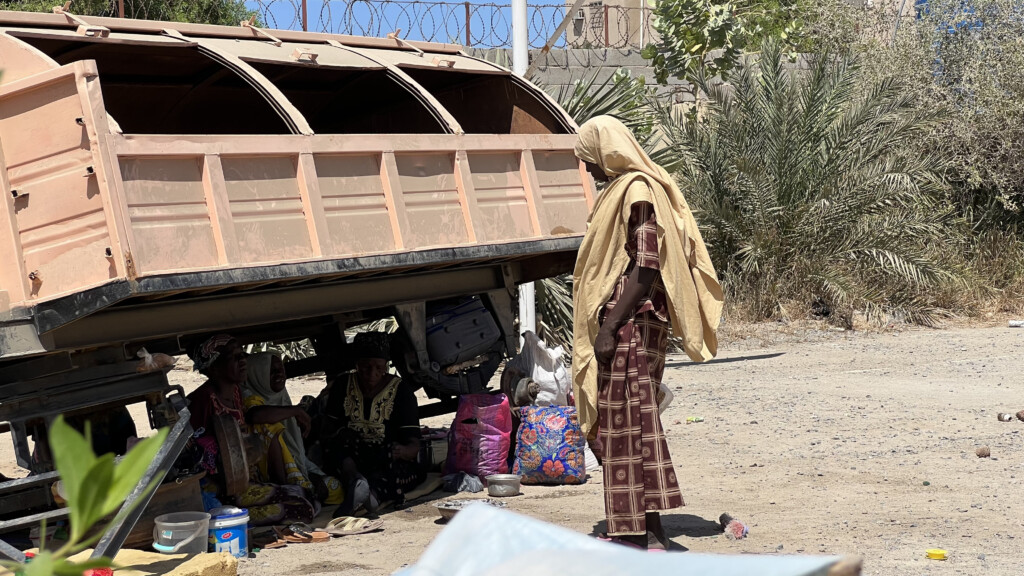IOM: ‘4m people fled their homes in Sudan’

People displaced bt the fighting in Khartoum find makeshift shelter in Port Sudan, May 10, 2023 (Photo: Mohamed Elamin / WFP)
According to the International Organisation for Migration (IOM), the number of Sudanese who fled their homes is now approaching four million: more than three million sought refuge within the country while nearly one million have crossed the border so far. The surge in displacement in Sudan is intensifying the plight of those seeking refuge, compounded by the arrival of the rainy season and the emergence of epidemics.
The IOM report, issued on Wednesday, said that Khartoum has been particularly hard-hit by the violence. More than 70 per cent of the displaced and refugees fled from this state.
Nile River state, North Darfur, and White Nile state host the highest percentages of displaced people in Sudan, currently amounting to more than 3,020,500 people.
Approximately 927,000 people have crossed Sudan’s borders. Chad is hosting 377,000 refugees (more than 40 per cent). About 279,000 people found refuge in Egypt.
In addition to the to the ongoing war between the Sudan Armed Forces and the paramilitary Rapid Support Forces, both tribal-based violence and the rainy season that began in June are further worsening the already dire humanitarian situation.
The World Food Programme (WFP) warned in mid-June that more than 19 million people, nearly 40 per cent of the country’s population, are at risk of hunger. The UN Children’s Fund (UNICEF) highlighted the urgent need for humanitarian support, particularly for more than 14 million children.
In response to the escalating crisis, the UN Office for the Coordination of Humanitarian Affairs (OCHA) in Sudan is coordinating the delivery of food and relief items to multiple Sudanese states.
The WFP has been providing critical assistance to over 450,000 people in Darfur, including those displaced by the conflict in El Ferdous in East Darfur, in collaboration with the Sudanese Red Crescent.
West Darfur refugees in Chad have reported harsh conditions, including insufficient shelter materials and food shortages, amidst the heavy rainfall period. Stranded Sudanese at the Egyptian border have also raised concerns over delayed visa issuance and deteriorating humanitarian conditions.
Rainy season
As heavy rainfall hit Sudan, the plight of displaced people in shelters across the country worsens. Sayed Mohamed in Sennar, warned of disease outbreaks as the shelter he is volunteering in, is flooded. The shelter houses hundreds of displaced, including 135 young children, of whom a number has been bitten by snakes in the waterlogged yard.
Authorities are under pressure to work with shelter management and address sewage and backfilling issues to lessen the impact of heavy rains. The situation demands immediate aid, including flour, rice, lentils, meat, and cooking utensils.
The Sudanese Ministry of Health received 12 tons of routine vaccination vaccines for children through Port Sudan Airport. Facilitated by UNICEF and supported by the Global Alliance for Vaccines and Vaccination, the vaccines include measles, muscular paralysis, and pneumococcal vaccines, with more doses expected to arrive soon.
The ministry plans to distribute these vaccines to various states using refrigerated vehicles to maintain their effectiveness.








 and then
and then